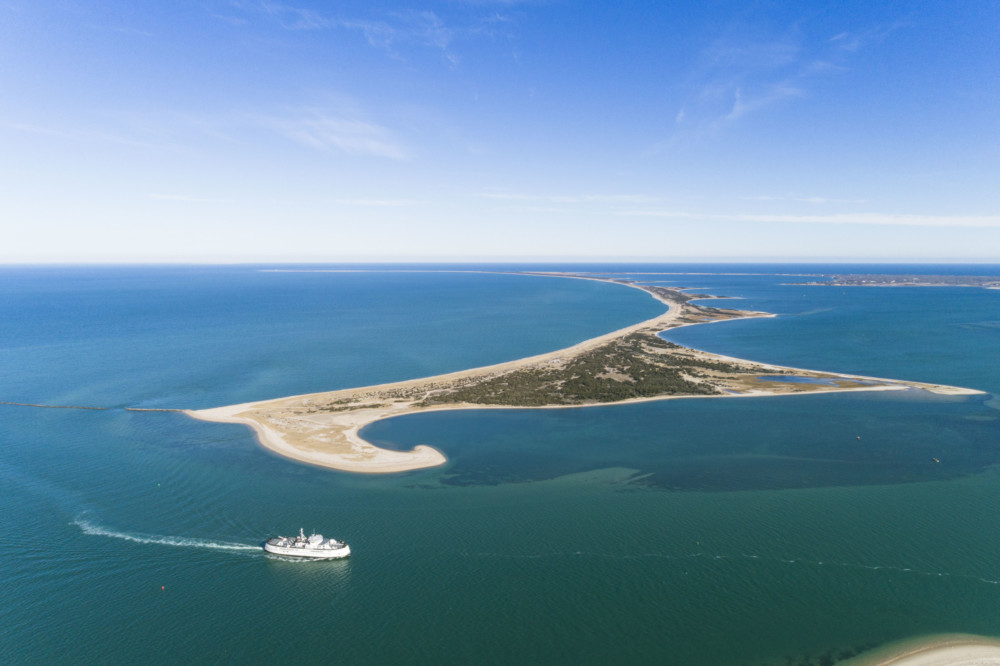A Tourist Village on Coatue?
Note: The Research Library is open year-round, Tuesday-Friday from 10am-4pm. The address is 7 Fair Street and it is attached to the Quaker Meeting House. Learn more on the NHA’s website.
Tourism came to Nantucket in the mid-1870s, rescuing the depressed and depopulated island. When whaling declined, many people left the island because of unemployment. Some sought riches, sailing to California to take part in the Gold Rush. The Civil War further decimated the island’s population. Tourism slowly replaced whaling and the fortunes of the island began to turn around.
Land developers advertised the island to a newly wealthy leisure class. Lots were laid out in Surfside in 1873. A railroad from town to Surfside, Tom Nevers, and ‘Sconset promised to bring summer folk to hotels or their residences to take in the summer air.
Perhaps the most unlikely spots for a tourist village was one planned for Coatue, the slender barrier peninsula that separates Nantucket Harbor from Nantucket Sound.
The Coatue Land Company laid out 141 plots in the mid-1880s. Included were sites for a clubhouse, a pier, a hotel, multiple stores and cottages. The speculators anticipated a daily ferry service in the summer from town from Coatue. The company optimistically predicted that sales would be so brisk that the village would eventually warrant a post office.
Several cottages were built and commercial ventures begun. The most elaborate was a bathing pavilion, complete with a wooden toboggan water slide which was in use for five years. Advertisements promised visitors “suits, bathrooms, toboggans and swings.” In 1890, H.G. Worth built a gun house for visitors who wanted to go trap shooting. In 1893, there was an unsubstantiated rumor that the New York Yacht Club was contemplating building a clubhouse there, but that never came to pass.
Ferry service never materialized. Eventually the scheme failed and the few businesses in Coatue fell into ruin.
In 1898 the idea of developing Coatue was briefly reviewed and the area resurveyed, but nothing came of this latter scheme.
Today there are a few privately-owned lots and cottages on Coatue, but the bulk of the fragile area is protected by the Coskata-Coatue Wildlife Refuge and accessible only by private watercraft or to private vehicles owned by members of the Trustees of the Reservation.
The Nantucket Historical Association preserves and interprets the history of Nantucket through its programs, collections, and properties, in order to promote the island’s significance and foster an appreciation of it among all audiences.

